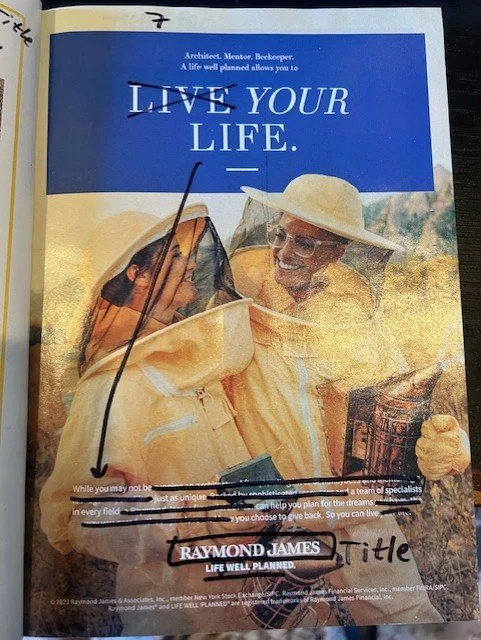That old paradox of “doing what you love” for a living. Do it for a living and it becomes essential work, can the magic remain - or do the pressures of life flatten one’s passion like an industrial vice? I’ve been writing for a little while now and I absolutely do still feel a spark for every professional project I take on — whether it’s for a client or company, with collaborators, or even just a spec (it’s still written in mind for a market place, after all). I love the work that I do, but it is work. So sometimes, I venture out to find writing that can purely be a means to its own end. Enjoy the process, be surprised by the result, share with friends - share with no one - who cares? Like a sand mandala, it was for the sake of experience. Except unlike a sand mandala, I am deciding to share something here rather than sweep into dust forever.
I’ve always been intrigued by blackout poetry, or “erasure poetry” as the academy calls it. It’s the practice of blacking out words on the page and connecting the remaining words to form a new piece of writing. I first encountered it in a college course, reading Srikanth Reddy’s “Voyager” which involves erasure poetry carved out of Kurt Waldheim’s writing (Waldheim was Secretary-General of the U.N. from 1972-81 and he was a former intelligence officer in Hitler’s Wehrmacht). Reddy’s erasure serves, in part, as an allegory for Waldheim’s selective erasure of his own memories and crimes.
I think I’m drawn to this form because it makes writing poetry seem more limited in a helpful way. Poetry is the most fluid, the most subjective, the most open-ended of all writing forms. It’s terrifying! Erasure limits you to what is already on the page, forces you to decode new meaning from it.
So, I’ve been going through old National Geographic monthly issues (yes, I have a subscription and I love it) - and I’ve been trying to make poems from every page. Not just the articles but the advertisements too. The ads are almost more fun because the work feels inherently humorous or satirical. Here’s one, hope you enjoy:
Raymond James: Life Well Planned (blackout poem from P.7 “Raymond James” advertisement of National Geographic - October, 2023)
Architect. Mentor. Beekeeper.
A life well planned allows you your life.
While you may not be just as unique,
a team of specialists in every field can help you
plan for the dreams you choose to give back
so you can live.

